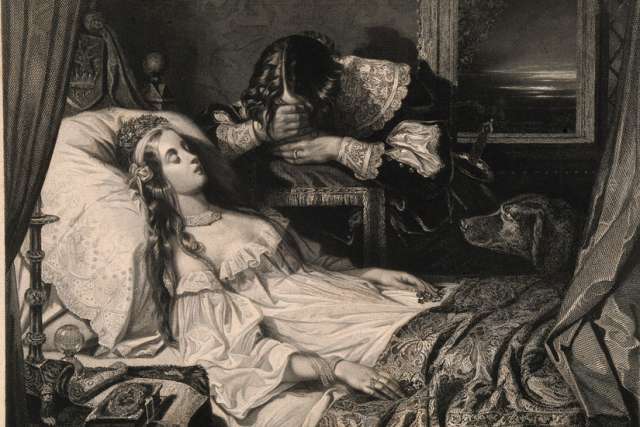Iris Murdoch wrote this and that truth can be somewhat disconcerting. Why? If someone dies with deep faith, shouldn’t he or she die within a certain calm and trust drawn from that faith? Wouldn’t the opposite seem more logical, that is, if someone dies without faith shouldn’t he or she die with more fear? And perhaps the most confusing of all: Why did Jesus, the paragon of faith, die afraid, crying out in a pain that can seem like a loss of faith?
The problem lies in our understanding. Sometimes we can be very naïve about faith and its dynamics, thinking that faith in God is a ticket to earthly peace and joy. But faith isn’t a path to easy calm, nor does it assure us that we will exit this life in calm. That can be pretty unsettling and perplexing at times.
The renowned spiritual writer Henri Nouwen, in his book In Memoriam, shares this story around his mother’s death. Nouwen, a native of the Netherlands, was teaching in the United States when he received a call that his mother was dying. On his flight from New York to Amsterdam, he reflected on his mother’s faith and virtue and concluded that she was the most Christian woman he had ever known. With that as a wonderfully consoling thought, he fantasied about how she would die, how her last hours would be filled with faith and calm, and how that faith and calm would be her final, faith-filled witness to her family.
But that’s not how it played out. Far from being calm and unafraid, his mother, in the final hours leading up to her death, was seemingly in the grip of some inexplicable darkness, of some deep inner disquiet, and of something that looked like the antithesis of faith.
For Nouwen this was very disconcerting. Why? Why would his mother be undergoing this disquiet when for all her life she had been a woman of such strong faith?
Initially this unsettled him deeply, until a deeper understanding of faith broke through. His mother had been a woman who every day of her adult life had prayed to Jesus, asking Him to empower her to live as He lived and to die as He died. Well, seemingly, her prayer was heard. She did die like Jesus who, though having a rock-solid faith, sweated blood while contemplating His own death and then cried out on the cross, anguished with the feeling that God had forsaken Him.
In brief, her prayer had been answered. She had asked Jesus to let her die as He did and, given her openness to it, her prayer was granted, to the confusion of her family and friends who had expected a very different scene.
That is also true for the manner of Jesus’ death and the reaction of His family and disciples. This isn’t the way anyone naturally fantasizes the death of a faith-filled person.
But a deeper understanding of faith reverses that logic. Looking at the death of Nouwen’s mother, the question is not how could this happen to her? The question is why wouldn’t this happen to her? It’s what she asked for and, being a spiritual athlete who asked God to send her the ultimate test, why wouldn’t God oblige?
There’s a certain parallel to this in the seeming doubts suffered by Mother Teresa. When her diaries were published and revealed her dark night of the soul, many people were shocked and asked: How could this happen to her? A deeper understanding of faith would, I believe, ask instead: Why wouldn’t this happen to her, given her faith and her openness to enter into Jesus’ full experience?
But, this has still a further complication. Sometimes for a person of deep faith it doesn’t happen this way and instead he or she dies calm and unafraid, buoyed up by faith like a safe ship on stormy waters. Why does this happen to some and not to others? We have no answer. Faith doesn’t put us all on the same conveyor belt where one dynamic fits all. Sometimes people with deep faith die, as Jesus did, in darkness and fear, and sometimes people with deep faith die in calm and peace.
Elizabeth Kubler-Ross submits that each of us goes through five clear stages in dying: denial, anger, bargaining, depression and acceptance.
Kathleen Dowling Singh suggests that what Kubler-Ross defines as acceptance needs some further nuance. According to Singh, the toughest part of that acceptance is full surrender and, prior to that surrender, some people, though not everyone, undergo a deep interior darkness that, on the surface, can look like despair. Only after that do they experience joy and ecstasy.
All of us need to learn the lesson that Nouwen learned at his mother’s deathbed. Faith, like love, consists of various modalities and may not be judged simplistically from the outside.
(Fr. Rolheiser can be reached at www.ronrolheiser.com.)


